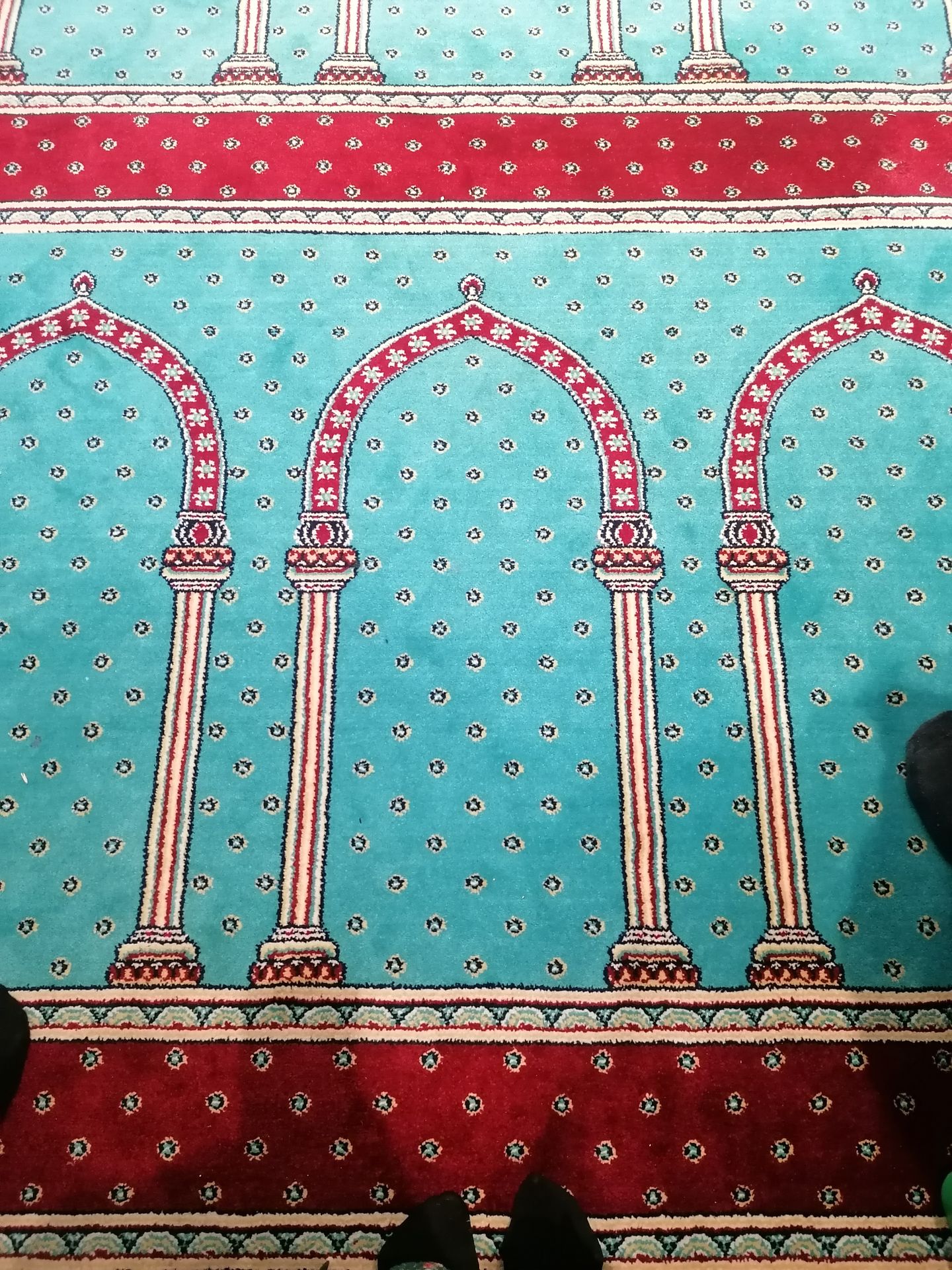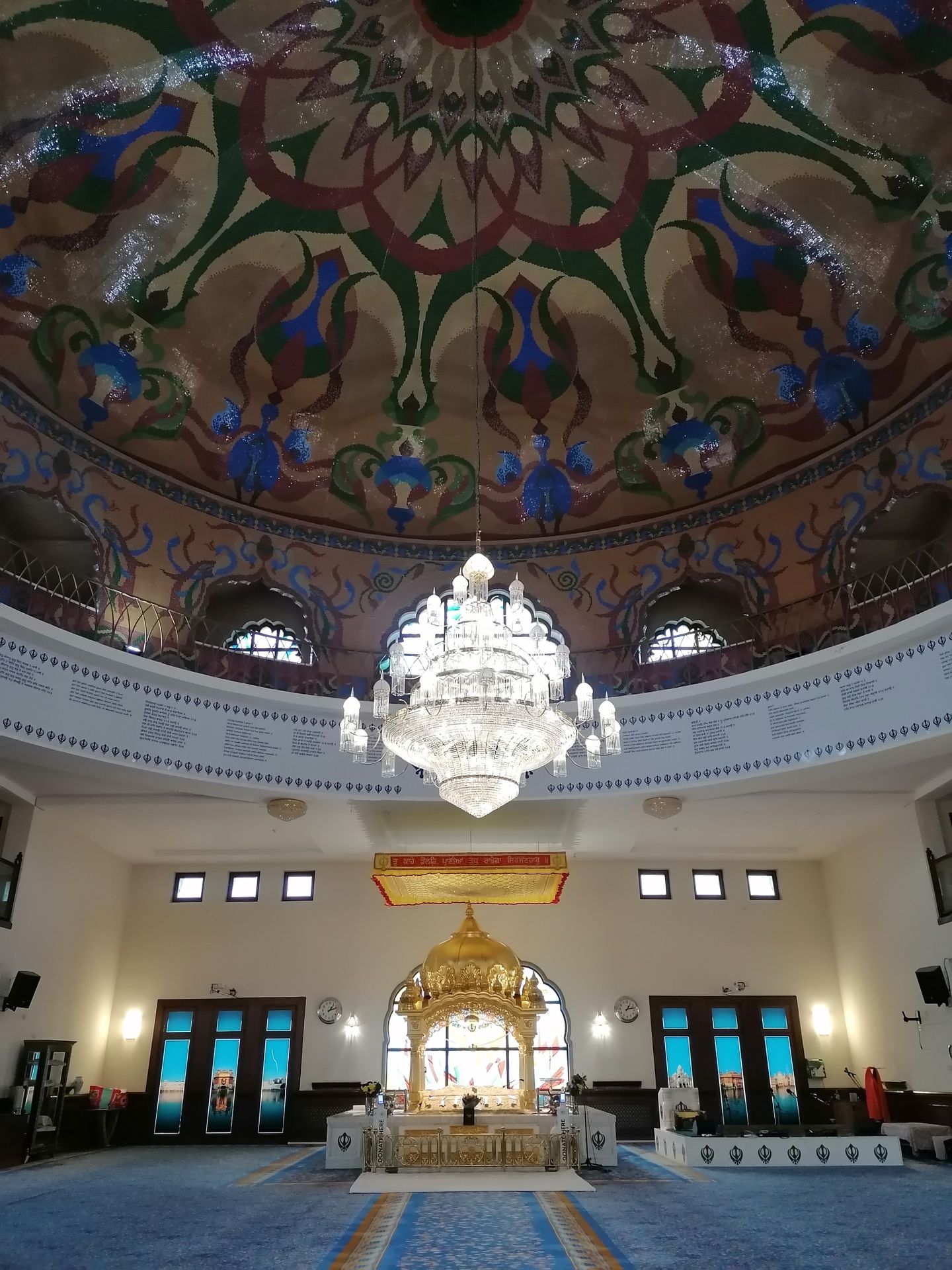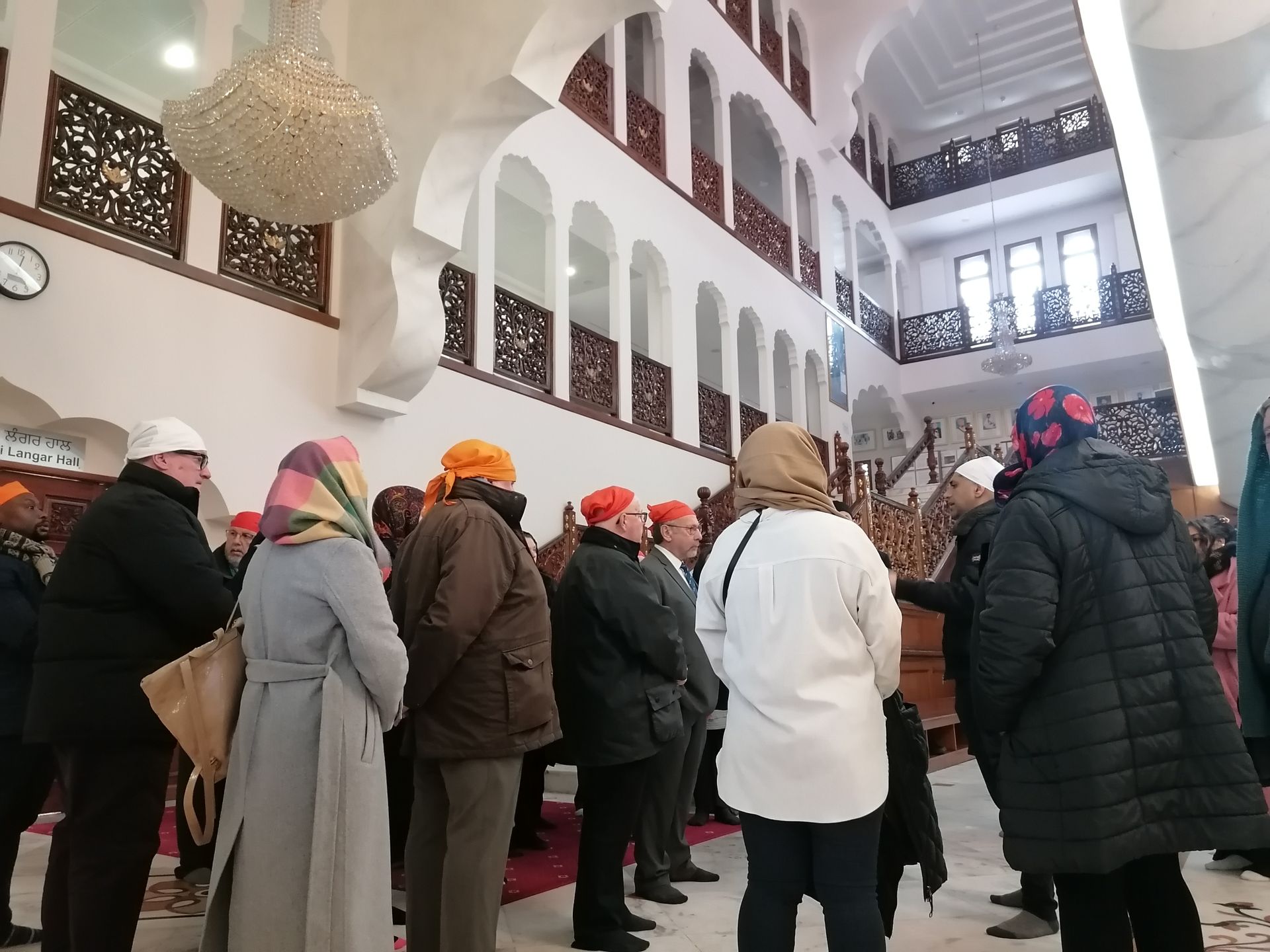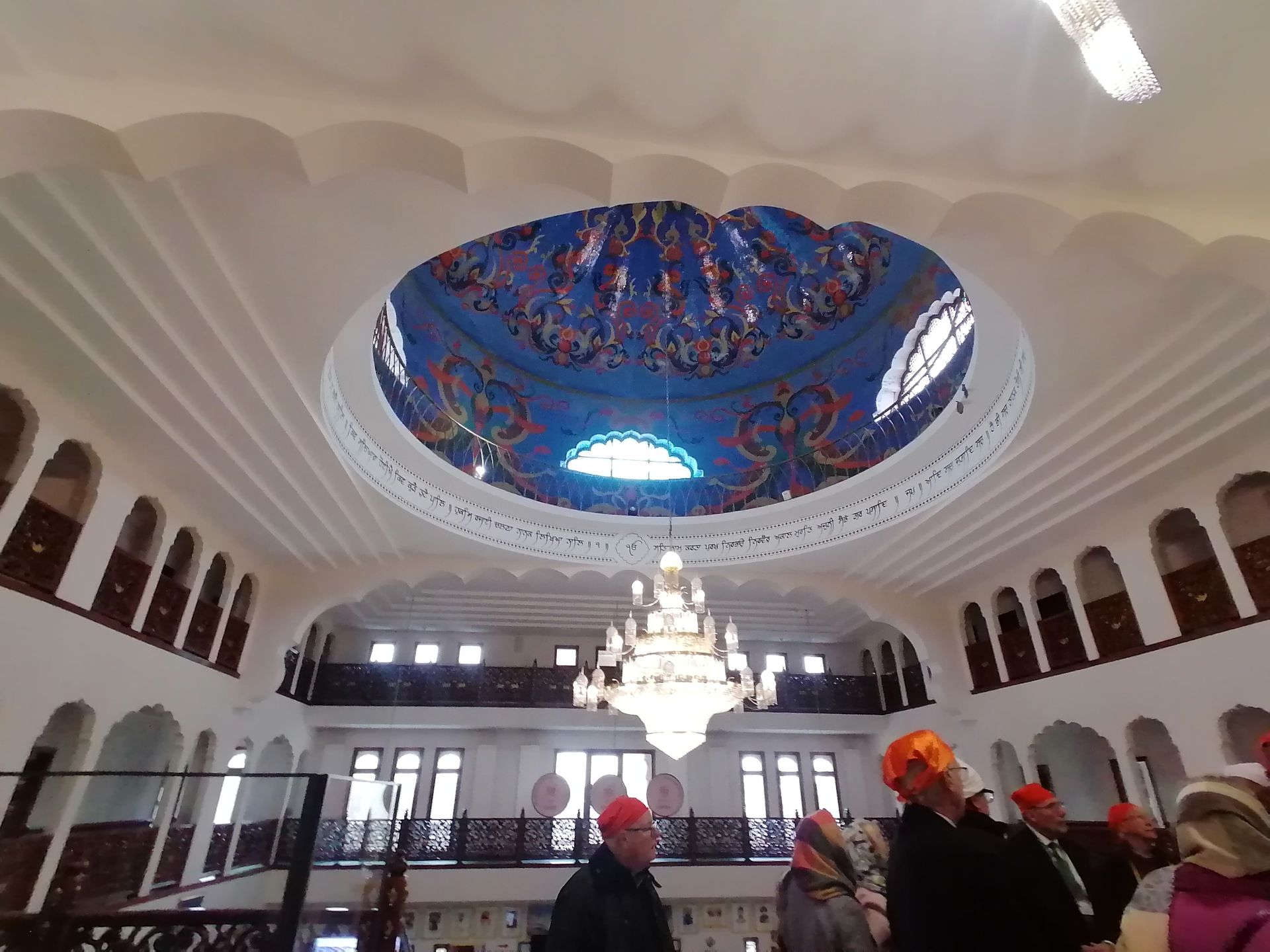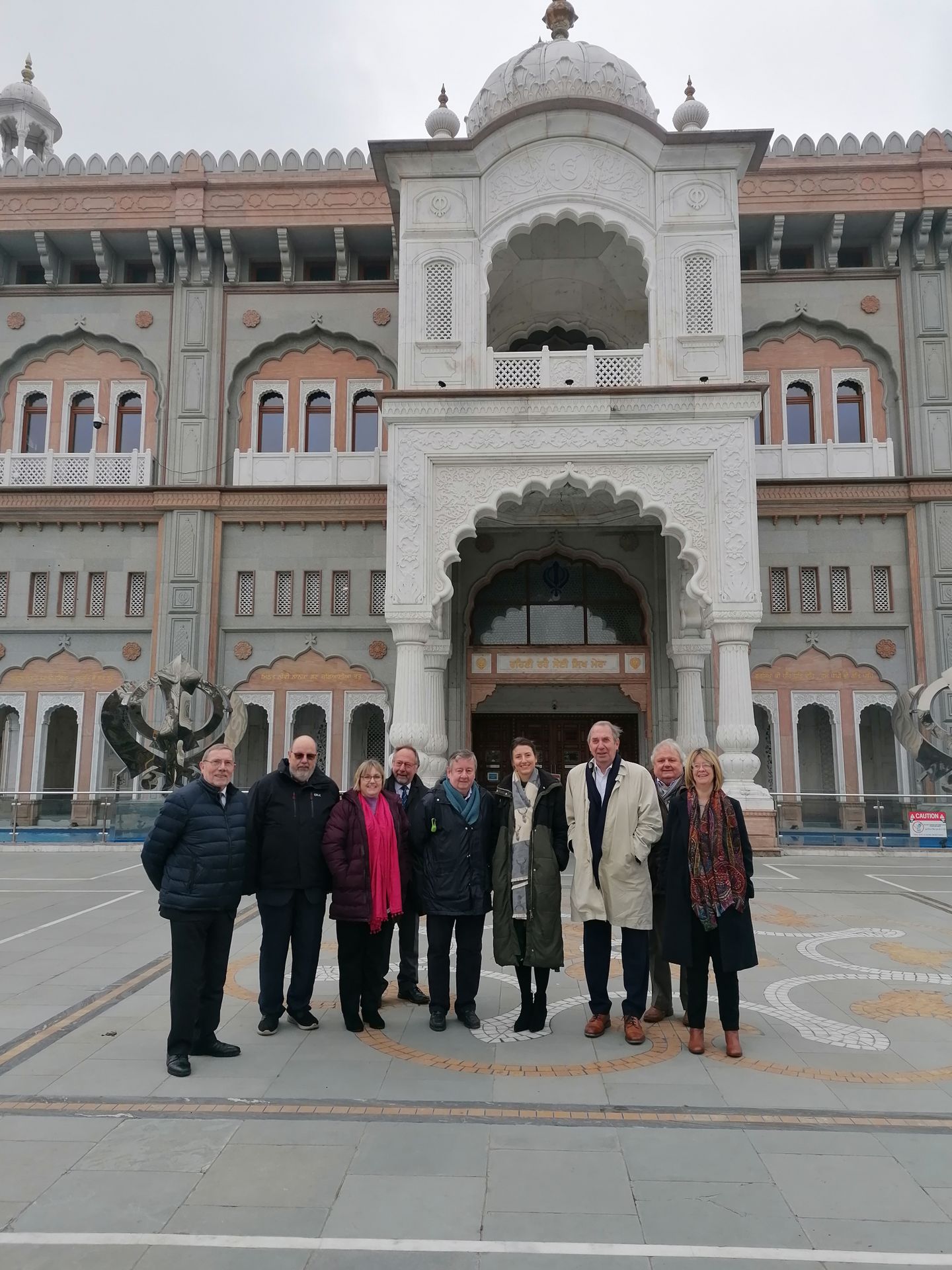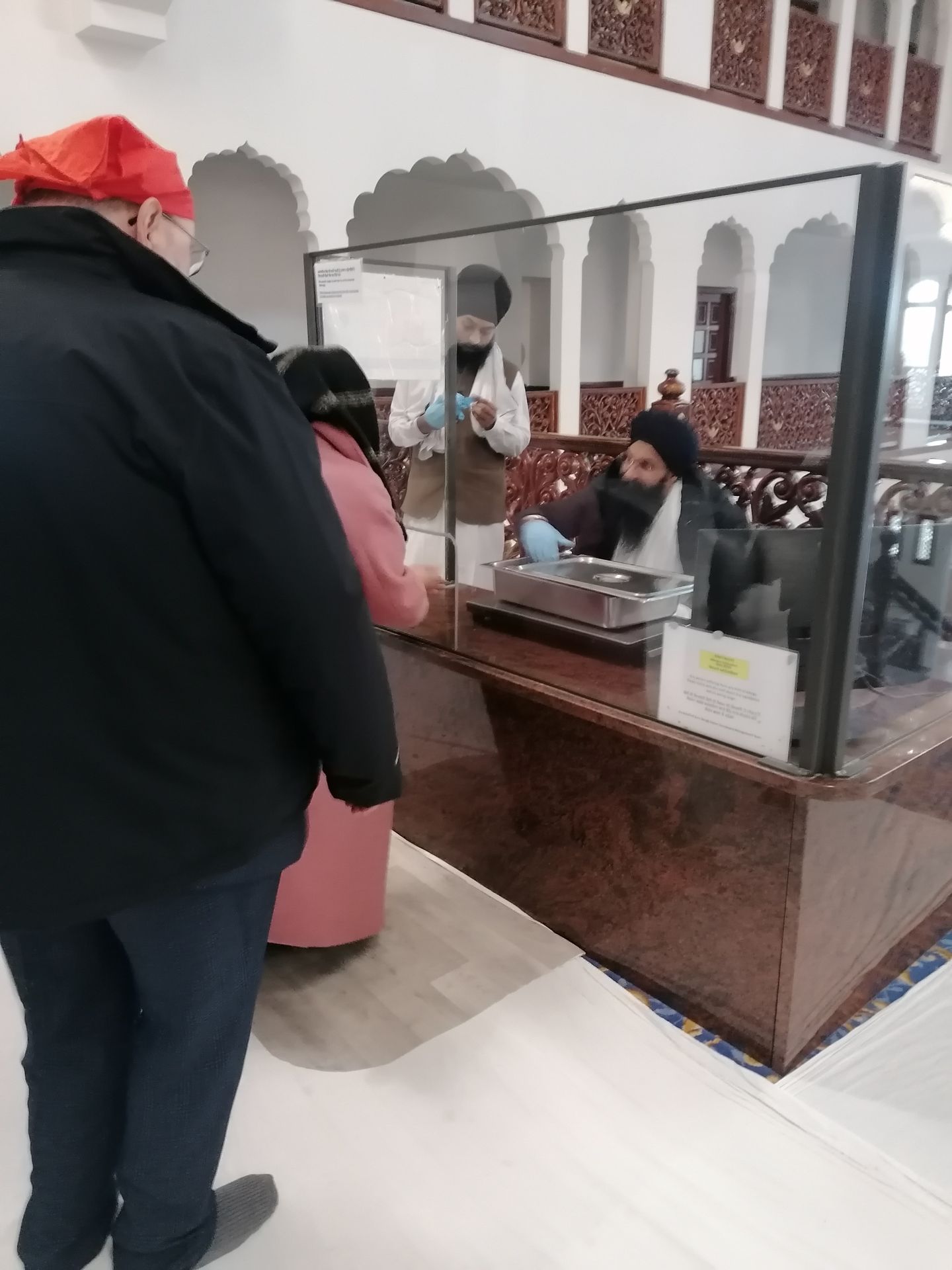Gurdwara and Mosque Visit
A Day of Learning and Inspiration at the Gurdwara
On Thursday, 13th February, members enjoyed a fun-filled and enlightening visit to the Gurdwara, where we had the opportunity to explore the building, learn about the Sikh religion, and witness first-hand the incredible work being done within the community. The Gurdwara is the Sikh place of worship, and its name translates to "the door of the Guru." More than just a space for prayer and meditation, it serves as a community hub where Sikhs can gather, learn, and support one another. The welcoming and relaxed atmosphere was immediately evident, reinforcing the Sikh belief in equality and the oneness of humanity.
Open to All: A Place of Equality
One of the fascinating aspects we learned about was the design of the Gurdwara. Many Gurdwaras have four doors, symbolising that people from all backgrounds and walks of life are welcome. This reflects the Sikh commitment to inclusivity and ensuring that no one is turned away, regardless of their faith, status, or nationality.
The Guru Granth Sahib: The Eternal Guru
A key part of the visit was learning about the Guru Granth Sahib, the holy scripture of Sikhism. This sacred text is treated with the utmost respect and is considered the eternal Guru, providing spiritual guidance to Sikhs worldwide. The Guru Granth Sahib is offered food and put to bed at night and in the morning taken to a raised platform called the Manji Sahib.
Karah Prashad
No visit to a Gurdwara would be complete without trying some of the delicious food! We were treated to a traditional offering known as Karah Prashad, a warm, sweet semolina-based dish often described as having a cookie dough-like texture. Made with flour, sugar, and ghee, it was a wonderful way to end our visit on a sweet note. Karah Prashad is offered to visitors in the Gurdwara as a symbol of blessing, equality, and humility. It is a sacred food in Sikhism, and is distributed to all attendees as a gesture of divine grace.
Why is Karah Prashad Given?
- A Sacred Blessing – Karah Prashad is considered a divine offering, blessed by the Guru and shared with everyone as a reminder of God's generosity.
- Symbol of Equality – Everyone, regardless of background, is given the same portion, reinforcing the Sikh belief that all are equal in the eyes of God.
- Encouraging Humility – It is traditionally received with cupped hands as a sign of respect and humility.
- Sharing and Community – Just like the Langar, Karah Prashad represents the spirit of giving and sharing, key principles in Sikhism.
Receiving Karah Prashad is a meaningful part of any visit to the Gurdwara, making visitors feel welcomed and included in the Sikh community.
Selfless Service and Community Spirit
One of the most inspiring aspects of our visit was witnessing the Langar—the free community kitchen that operates in every Gurdwara. Volunteers begin cooking at 3:30 in the morning, ensuring that hot meals are available to all, regardless of background. This practice, introduced by Guru Nanak, embodies the Sikh principle of sewa (selfless service) and ensures that no one leaves hungry. The Langar also serves as a powerful symbol of equality. Regardless of wealth, status, or background, everyone sits together and shares the same meal. There are no distinctions between rich and poor, reinforcing the belief that all people are equal in the eyes of God. This simple yet profound act breaks down social barriers and fosters a sense of unity and community.
Beyond providing meals, the Gurdwara is a place of support for the wider community, offering education, social initiatives, suicide prevention and assistance to those in need. We were truly humbled by the dedication and generosity of the volunteers who make this happen every single day.
The experience was incredibly insightful, and we left feeling inspired by the values of equality, kindness, and community spirit that lie at the heart of Sikhism. A huge thank you to everyone at the Gurdwara for their warm hospitality and for taking the time to share their faith and traditions with us.
---------------------------------------------------------------------------------------------------------------------
An Enlightening Visit to Gravesend Central Mosque
Following our enriching experience at the Gurdwara, our group had the privilege of visiting Gravesend Central Mosque, where we were warmly welcomed by the Chairman and Imam. This visit offered us profound insights into Islamic practices, the significance of community in Islam, and the mosque's pivotal role in serving both its congregation and the broader community.
The Essence of Community in Islam
Central to the Islamic faith is the concept of community and the importance of supporting those in need. One of the Five Pillars of Islam is Zakat, which means Muslims donate a portion of their wealth to charity annually. This practice ensures the equitable distribution of resources and reinforces the belief that all wealth is a trust from God, meant to be shared with those less fortunate. Beyond Zakat, many Muslims engage in additional voluntary giving, known as Sadaqah, further exemplifying their commitment to social welfare and community support.
Observing Ramadan
Another cornerstone of Islamic practice is Ramadan, the holy month of fasting and spiritual reflection. During this period, Muslims abstain from food and drink from dawn until sunset, focusing on prayer, self-discipline, and empathy for the less fortunate. In 2025, Ramadan is expected to commence around February 28th and conclude approximately on March 29th, depending on the sighting of the moon. The fast is broken each evening with a meal called Iftar, and the pre-dawn meal before the fast begins is known as Suhoor. This month-long observance fosters a deep sense of community, as families and friends gather to break their fast together, and communal prayers and charitable activities are heightened.
Architectural and Functional Insights
During our tour of the mosque, we observed that all carpets in the prayer halls are oriented towards Mecca (Makkah), specifically towards the Kaaba, which is the holiest site in Islam. This orientation, known as the Qibla, ensures that worshippers face Mecca during their prayers, symbolising unity and direction in worship.
We were guided through the mosque's two main prayer halls, designed to accommodate congregational prayers and community gatherings. The serene ambiance of these spaces reflects the mosque's role as a place of worship, reflection, and community cohesion
Breaking Down Barriers
The Chairman of the mosque emphasised that mosques are open to everyone, regardless of faith or background, and that anyone is welcome to visit, learn, and engage in dialogue. This commitment to inclusivity and mutual understanding aligns with the core Islamic principles of hospitality and unity.
Community Services and Burial Practices
An essential service provided by the mosque is its mortuary, which offers free facilities for the preparation of deceased community members according to Islamic rites. In Islam, there is a strong preference for burial over cremation, with an emphasis on conducting the burial as promptly as possible after death (some burials happening the same day). However, securing adequate burial space can sometimes pose challenges. The mosque actively engages with local authorities and community organisations to address these challenges, ensuring that the final rites are performed with dignity and in accordance with religious traditions.
A Lasting Impression
Our visit to Gravesend Central Mosque was both educational and inspiring. We gained a deeper understanding of Islamic beliefs, the significance of community and charity, and the mosque's multifaceted role in serving its congregation and the wider community. We extend our heartfelt gratitude to the Chairman, Imam, and the entire mosque community for their gracious hospitality, refreshments and for sharing their faith and practices with us.
